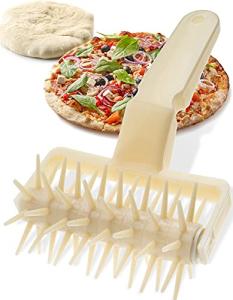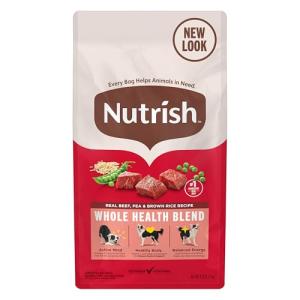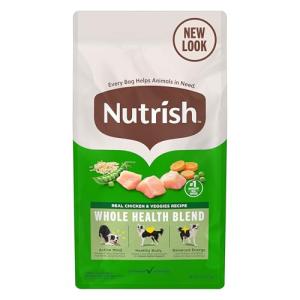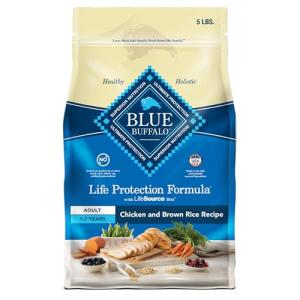When it comes to feeding our furry friends, choosing the right dog food is essential for their overall well-being. However, with the overwhelming variety of options available on the market, deciphering dog food labels can be quite a challenge. To ensure you make informed choices that optimize your dog's nutrition, here are some important factors to consider:
1. Look for a Specific Protein Source
The first ingredient listed on a dog food label is typically the primary protein source. Whether you're opting for chicken, beef, fish, or any other protein, it's important to select a dog food that clearly specifies the source. Avoid general terms like "meat" or "poultry by-products," as these do not provide adequate information about the quality or type of protein included in the formula.
2. Mind the Ingredient List Order
Paying attention to the order of ingredients is crucial. The ingredients are listed in descending order by weight, meaning the first few ingredients make up the majority of the dog food. As a rule of thumb, aim for a food that has high-quality protein sources listed at the beginning, such as whole meats or meat meals.
3. Avoid Fillers and Artificial Additives
Fillers and artificial additives do not offer any nutritional value to your dog and may even cause potential harm. Common fillers include corn, wheat, and soy. Additionally, keep an eye out for artificial colors, flavors, and preservatives, as these unnecessary additives can lead to allergies or digestive issues in some dogs.
4. Consider the Guaranteed Analysis
The guaranteed analysis section of a dog food label provides important information about the nutrient content of the food. Look for brands that provide a balance of protein, fat, and carbohydrates suitable for your dog's breed, age, and activity level. It's also beneficial to choose formulas with added vitamins and minerals to ensure a complete and balanced diet.
5. Check for Nutritional Adequacy Statements
A reputable dog food will have a statement on the label confirming that it meets the nutritional requirements established by the Association of American Feed Control Officials (AAFCO). This statement assures you that the food has undergone testing and meets the necessary standards for your dog's specific life stage, such as puppy, adult, or senior.
6. Take into Account Your Dog's Unique Needs
Every dog is different, and their nutritional requirements vary based on factors such as size, age, activity level, and any specific health conditions. Consult with your veterinarian to determine the best type of dog food that aligns with your furry companion's unique needs. They will provide valuable guidance and help you make the optimal selection.
Decoding dog food labels may initially seem daunting, but armed with the right knowledge, you can confidently choose a quality food that satisfies your dog's nutritional needs. By prioritizing specific protein sources, avoiding fillers and additives, checking nutritional analysis and adequacy, and considering your dog's unique requirements, you'll be well on your way to providing your four-legged friend with the best possible nutrition.
Meeting Fido's Dietary Needs: Essential Nutrients for Dogs
When it comes to providing optimal nutrition for our furry friends, understanding their dietary needs is crucial. Just like humans, dogs require a balanced diet to stay healthy and thrive. Here are some essential nutrients that should be a part of every dog's diet:
Protein
Protein is the building block of life, and it plays a crucial role in a dog's diet. It is responsible for building, repairing, and maintaining tissues, muscles, and organs. High-quality protein sources such as meat, poultry, fish, and legumes are essential for dogs. It is recommended that protein should make up around 18-25% of their daily caloric intake.
Fats
Fats are an excellent source of energy for dogs and play a vital role in their overall health. Omega-3 and omega-6 fatty acids, specifically, are essential for maintaining healthy skin and coat, supporting brain function, and reducing inflammation. Sources of healthy fats include fish oil, chicken fat, and flaxseed oil.
Carbohydrates
While dogs do not require carbohydrates in large amounts, they can still benefit from them. Carbohydrates provide energy and serve as a source of fiber, aiding digestion. High-quality, easily digestible carbohydrates such as sweet potatoes, brown rice, and whole grains are recommended.
Vitamins
Vitamins are necessary for various bodily functions in dogs. Vitamin A promotes good vision, while vitamins C and E act as antioxidants, supporting the immune system. B vitamins aid in energy production, and vitamin D helps with calcium absorption. A well-balanced diet usually provides sufficient vitamins, but it may be necessary to consider supplements for specific deficiencies.
Minerals
Minerals are essential for maintaining a healthy body and proper bodily functions. Calcium and phosphorus are crucial for strong bones and teeth. Iron helps in oxygen transportation, and zinc is necessary for a healthy immune system. Meat, fish, dairy products, and certain vegetables are good sources of minerals.
Water
Lastly, water is often overlooked but is one of the most critical components of a dog's diet. It is necessary for hydrating the body, aiding digestion, regulating body temperature, and flushing out toxins. Always ensure your dog has access to clean, fresh water throughout the day.
Remember, every dog is unique, and their nutritional needs may vary based on factors such as age, size, breed, and activity level. Consult with your veterinarian to determine the optimal diet for your furry friend, keeping in mind any specific health concerns or dietary restrictions they may have.
Tailoring the Diet: Finding the Best Dog Food for Your Furry Friend
When it comes to providing optimal nutrition for your beloved canine, choosing the right dog food is crucial. Each dog has unique dietary needs, so tailoring their diet to match those needs is essential for their overall health and well-being.
Specific nutritional requirements
The first step in finding the best dog food for your furry friend is determining their specific nutritional requirements. Consider your pet's:
- Age
- Size
- Breed
- Activity level
All play a role in determining these needs. Puppies have different dietary needs than adult dogs, and larger breeds require special attention to support their joint health. Consulting with your veterinarian is recommended to ensure you're making the right choices.
Type of dog food
The next consideration is the type of dog food to offer. There are three main options:
- Dry kibble
- Wet canned food
- Combination of both.
Dry kibble is convenient and helps keep the teeth clean, while wet canned food may be more palatable for picky eaters or dogs with dental issues. Combining both can provide a balance between texture and nutrients.
Quality of the ingredients
Reading the dog food label is essential to understand the quality of the ingredients. Look for dog foods rich in high-quality proteins, such as chicken or salmon, as these are essential for muscle and tissue repair. Avoid foods that contain excessive fillers, artificial preservatives, and by-products, which offer little nutritional value.
Furthermore, considering any dietary restrictions or allergies your dog may have is crucial. Some dogs are sensitive to certain ingredients like gluten or grains, and may require a grain-free or hypoallergenic dog food. Identifying and eliminating potential allergens can significantly improve your dog's digestion and overall health.
Monitor your dog's response
Once you've selected a dog food, it's important to monitor your dog's response to the new diet. Look for improvements in their coat quality, energy levels, digestion, and overall behavior. If any negative changes occur, such as upset stomach or allergic reactions, consult with your veterinarian to adjust the diet accordingly.
Summary
Finding the best dog food for your furry friend involves considering their specific nutritional requirements, choosing the right type of food, scrutinizing the ingredients, and being mindful of any dietary restrictions or allergies. Remember that providing optimal nutrition is key to ensuring the longevity and well-being of your canine companion. With proper research and consultation, you'll be able to select the perfect dog food that will support your furry friend's overall health and happiness.







